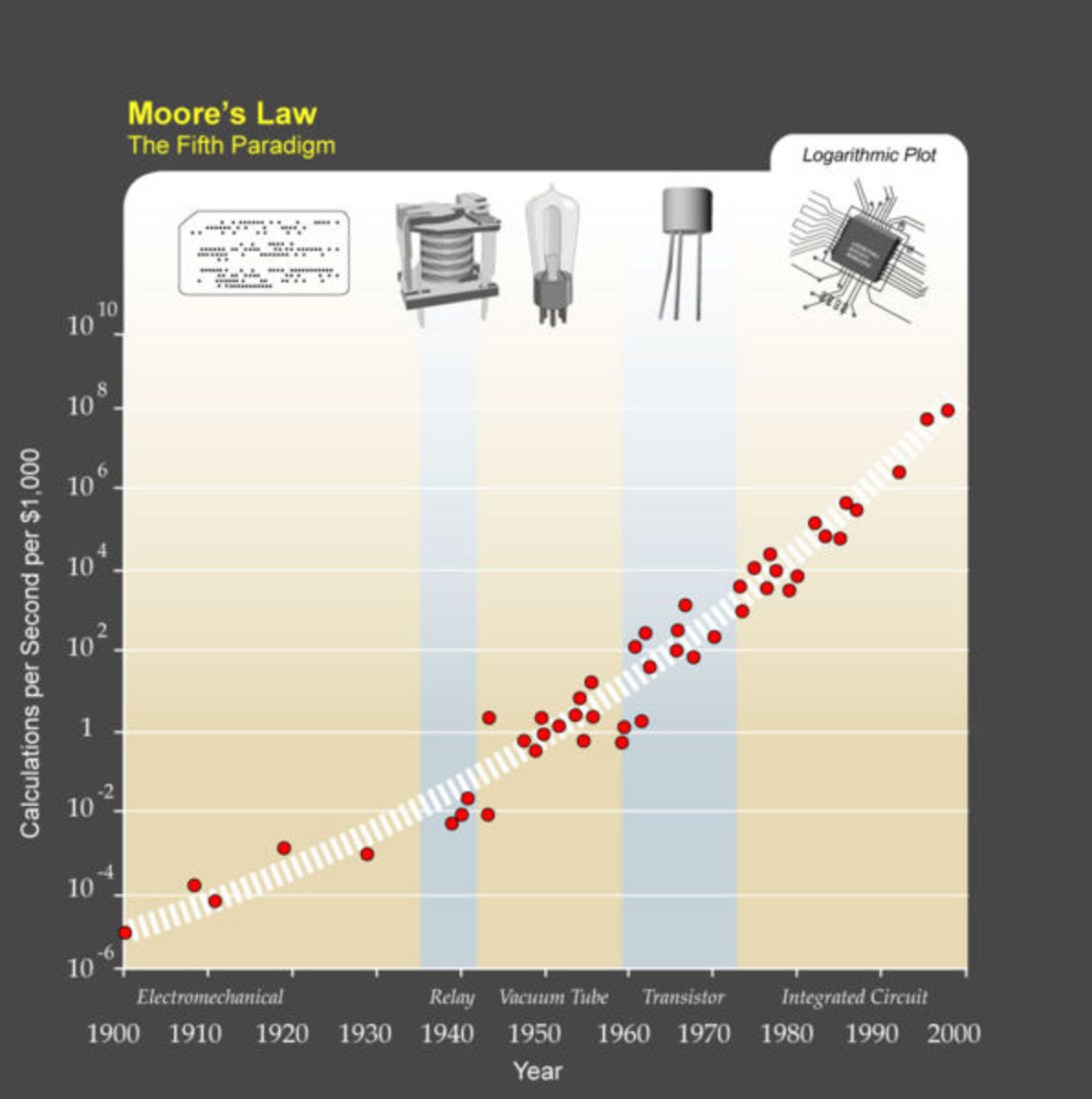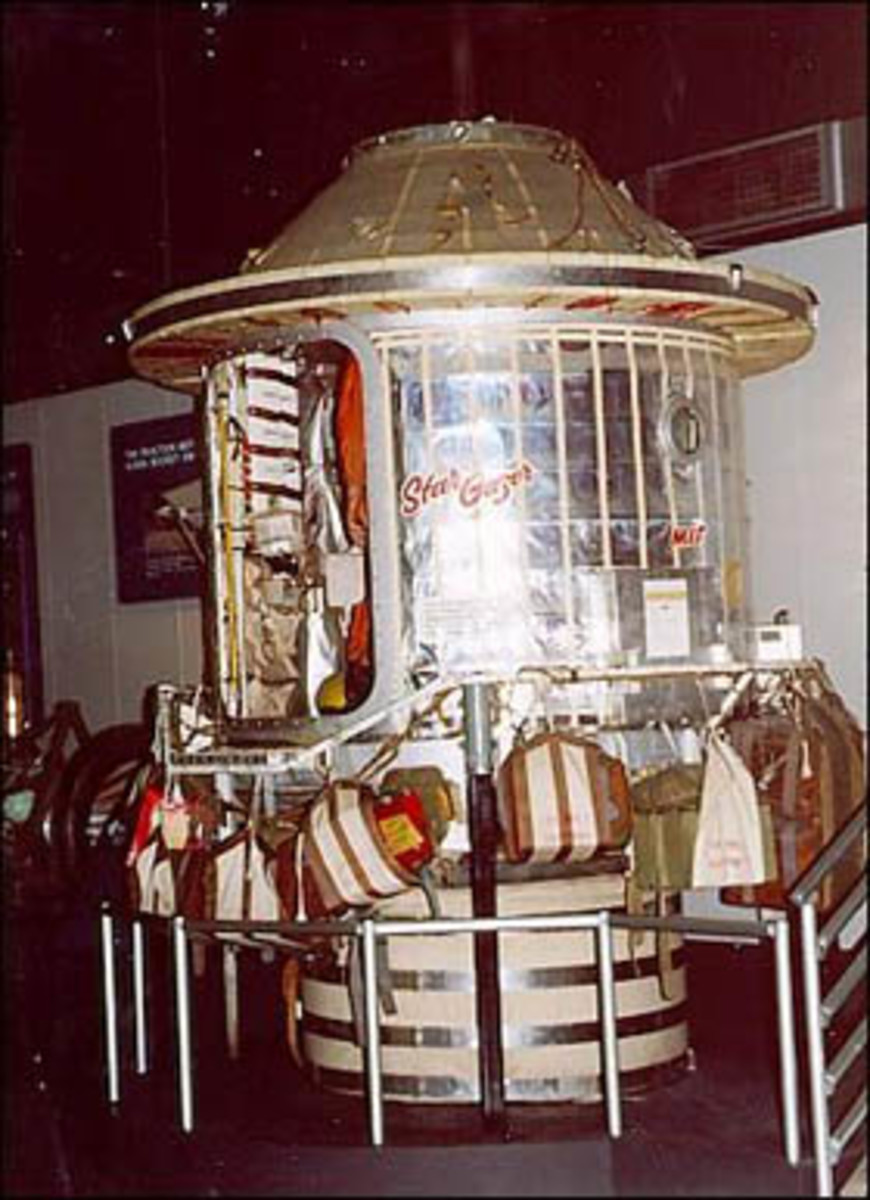- HubPages»
- Books, Literature, and Writing»
- Books & Novels»
- Fiction»
- Science Fiction & Fantasy Books
Why Read Sci Fi?

The Singularity
Technological Singularity
Satellites, computers, the internet, all of these things that we take for granted today, started out as science fiction. As time goes on, the rate of technological advancement only seems to accelerate. Many scientists and futurists look at this rate of change and the application of More's law to other fields of human endeavor and foresee what they call a technological singularity, in our near future. The term, singularity is borrowed from astronomy, where it describes the heart of a black hole. The point at which light can no longer escape and the laws of physics as we know them can no longer predict anything. In the case of the predicted technological singularity, it refers to a point at which technological advancement proceeds so rapidly that it becomes difficult, if not impossible, to predict what the world on the other side will be like.
How Sci Fi Changed the World
The purpose of sci fi
“If the future can't be predicted what good is science fiction then?” One might ask. From it's infancy, the genre has been a source of prediction and inspiration for future technology, after all. Those dismissed as nerdy for reading sci-fi often grew up to be the scientists and engineers who brought the ideas they read about in their youth to life. Don't believe it, check out documentaries like How William Shatner Changed the World or "Prophets of Science Fiction." If, however, we face unpredictable advancements, why do our scientists and engineers need further inspiration? It may be true that we are about to pass a point where the genre can no longer serve as a wellspring of inspiration. It has long had another function, that the genre shared with it's cousin fantasy. It is often used to ask moral questions in a non confrontational way. "Star Trek," for example, was filled with allegory for the social issues of the day dressed up in a fantastical context. As important as providing a safe way to address our modern problems is, science fiction can also address the problems we are about to face. It's actually been doing it for a long time.
The Golem Legend
A.i.
Futurists like Michio Kaku talk about how we might see true artificial intelligence by 2050. Fiction writers have been talking about that Pandora's box for decades. If you count Frankenstein as a form of A.I., it's been discussed for over a century, even longer if you remember the Golem myth. Of course, as we come closer to the reality, our stories move from being motivated by fear of what we might create, to speculation on how we might relate to it. They become less Terminator and more Her. We begin to wonder, how will we treat a real thinking machine? If it's truly our intellectual, emotional and creative equal and we make it property, then isn't that slavery? If we treat our thinking machines as slaves, then how should they treat us when (as further predictions assume) they become our intellectual superiors?
3d Printing for Organ Transplants
- Researchers closing in on printing 3-D hearts
LOUISVILLE, Ky. — Researcher Stuart Williams is not talking about a far-off, science-fiction effort when he describes how scientists here will create new, functioning human hearts — using cells and a 3-D
The future is now
Ways the world is about to change
If modern 3d printers mature into "Star Trek" replicators how will that effect our world? Will we have a Utopia free of need or will the specter of human greed find new ways to express itself? There are science fiction authors and futurists on both sides of the debate. Some predict, a freeing of human creativity and a golden age. Others, an age of stagnation, with no need to drive our development. The truth may well be somewhere in the middle. Not all the fiction that's dealt with these questions has specifically referred to exactly this form of technology but stories about machines that eliminate all need have been around for a while. Asimov's Robot stories looked at potential effects of machines that eliminated the need for human labor decades before 3d printers were ever thought of. Since there are people already working on machines that can print out food and functional organ replacements, knowing the ethical conundrums that will result, might be a good idea.
The Retro Future
This used to be Science Fiction

Where are we going?
There are countless more examples of how Science Fiction has grappled with the ethical questions that are around the corner in the real world. To ignore sci-fi as a genre, or to say it's just for kids, is to turn a blind eye to where the world is going. If you don't believe that, you should consider, 30 years ago the way you are reading this was science fiction. Just because we don't have Jetsons style flying cars, does not mean we aren't already living in a science fiction future.












